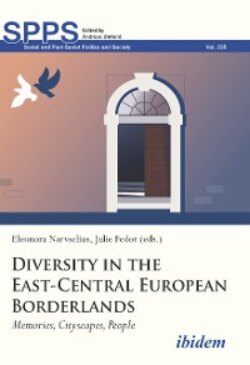Читать книгу Diversity in the East-Central European Borderlands - Группа авторов - Страница 34
На сайте Литреса книга снята с продажи.
Concluding Remarks
ОглавлениеIn all four cities, conditions for preservation of cultural heritage have improved, although the Old Town of Chişinău is still in danger. The attainment of World Heritage status for the historic centers of L’viv and Chernivtsi, as well as the German “Centennial Hall” in Wrocław, has been an important factor.
The increasing attention being paid by inhabitants to the historical value of the old city districts is slowly coming to be reflected in daily politics and city planning. While the postwar generations to a large extent regarded many old buildings as primitive and “unmodern,” to be replaced by new modern apartments, new generations, as in many other countries, have a greater understanding of their historical value and potential for future restoration.
Climate change and the need for a more sustainable development is also impacting urban planning at different levels step by step, although at a rather slow pace in post-communist countries. With the end of communist rule there arose counter-movements, on one hand, to increase the use of personal automobiles, and on the other hand, to reduce societal planning and favor private investment. In turn, an awareness of the need for a new, sustainable urban planning is on the rise now.
The international situation will impact future developments. Moldova is currently poised tensely between orientation towards Russia and orientation towards Romania and the EU. West Ukraine has increasing contacts with the EU. Chernivtsi has special connections with Austria (Vienna) and Germany, while L’viv is reconnecting with Poland. As the center of the Greek Catholic Church, L’viv also has contacts with Rome. Wrocław has potential as a city of both reconciliation and multi-ethnic tolerance and as a scientific center, in parallel with L’viv. The 2019 Nobel Prize Laureate Olga Tokarczuk is a part of this movement. The role of Wrocław in the EU and Europe will to a great extent depend on the future political development of Poland, today affected by the PiS regime.
Generally, in all four cities, there is a growing interest, at least among intellectuals and enthusiasts, in the history of the city’s populations during the interwar and earlier periods, and their cultures and achievements. There is also a growing interest in the end of the previous urban culture; the misdeeds of both the Stalinist and Nazi regimes, including the Holocaust; and generally the history of persecution, one-sided narratives, and obfuscation of the truth in the Soviet and communist years. This search for historical facts is a source of discomfort for some, however. There are issues concerning Polish, Ukrainian, and Moldovan/Romanian collaboration in the Holocaust; cooperation with Nazi Germany against Soviet power; and collaboration in Stalinist atrocities. Nationalist political movements in all three countries tend to focus on some events and neglect or conceal others.
